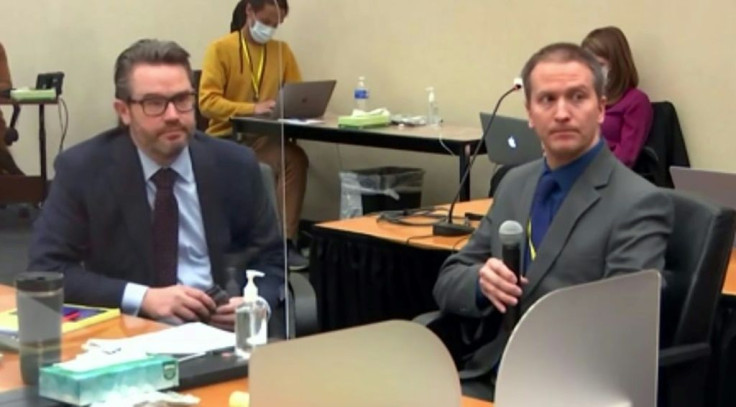If Convicted, Derek Chauvin Could Face 150 Months In Prison Over George Floyd's Death
KEY POINTS
- Derek Chauvin could face 150 months in prison over his role in George Floyd's death
- The jury has been sequestered to deliberate their verdict
- The prosecution argued that several factors require a longer prison term
Derek Chauvin, a former Minneapolis police officer, could face 150 months in prison over his role in the death of George Floyd on May 25, 2020, while in police custody.
Chauvin’s trial entered the final phase Monday with jurors hearing legal instructions from Hennepin County Judge Peter Cahill on the three Minnesota criminal charges filed against the former officer.
Chauvin is facing charges of second-degree and third-degree murder, as well as second-degree manslaughter. The jury is being sequestered to deliberate on their verdict.
If Chauvin is convicted of the most serious charge, he faces up to 12 ½ years in prison under the sentencing guidelines for a first-time offender. The prosecution argues, however, that several factors require a longer prison term.
"He did what he did on purpose, and it killed George Floyd," prosecutor Steve Schleicher said during the closing argument.
"Use your common sense. Believe your eyes. What you saw, you saw," Schleicher added, referring to a video recording of the encounter between Chauvin and Floyd.
The jury may decide to convict Chauvin on any, all or none of the charges. But if he is found guilty, he could receive a longer or shorter term.
Second-degree murder - unintentional
Second-degree murder is unintentionally causing the death of a human being, while committing or attempting to commit a felony. In this case, the prosecution alleged the felony to be third-degree assault.
An expert on the use of force said it was unreasonable for Chauvin to hold Floyd in the prone position while handcuffed and face-down on the pavement for more than 9 minutes.
"No reasonable officer would have believed that that was an appropriate, acceptable or reasonable use of force," prosecution witness Seth Stoughton said.
On this charge, Judge Cahill instructed jurors to convict the officer if they find that he intended to commit an assault or intentionally aided in causing bodily harm.
Third-degree murder
For this count, Cahill instructed the juror to find that Chauvin caused Floyd’s death by committing an action that is dangerous to others while exhibiting signs of reckless disregard for human life.
Dr. Martin Tobin, a lung and critical care specialist, testified for the prosecution that any healthy person subdued in the prone position Floyd was in would have died.
Second-degree manslaughter
Prosecutors had to prove that Chauvin exhibited culpable negligence that creates an unreasonable risk and knowingly does something that can lead to the death or serious bodily injury of someone.
“Culpable negligence is intentional conduct that the defendant may not have intended to be harmful, but that an ordinary and reasonably prudent person would recognize as having a strong probability of causing injury to others,” Cahill told the jury.

© Copyright IBTimes 2024. All rights reserved.






















